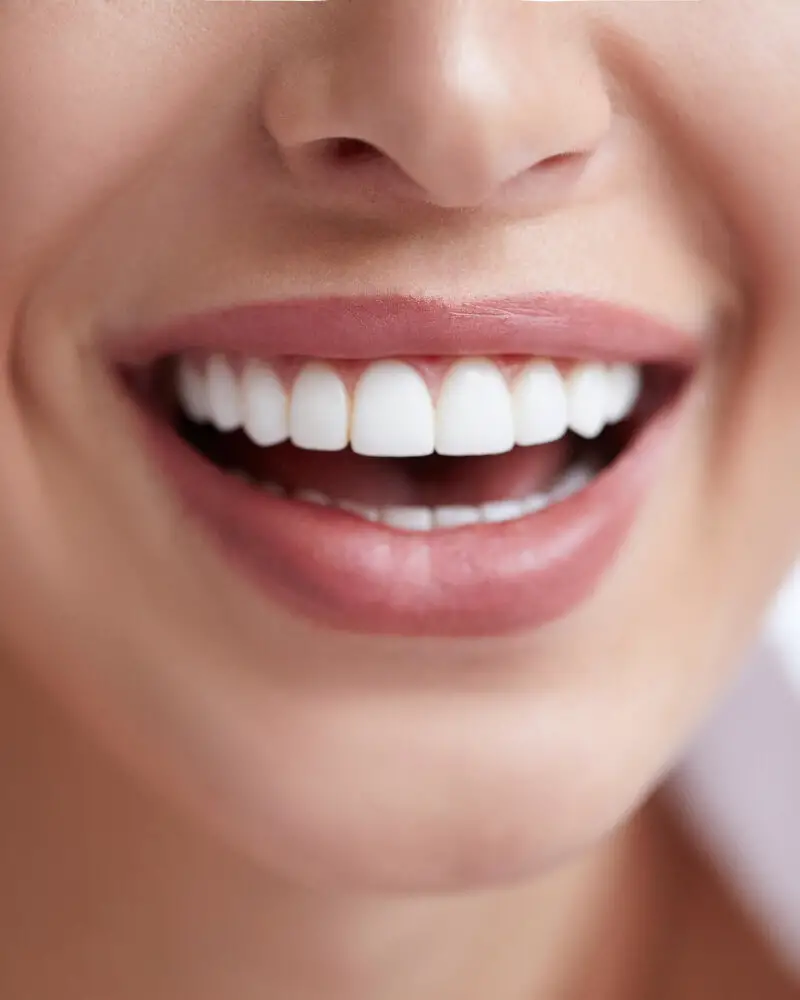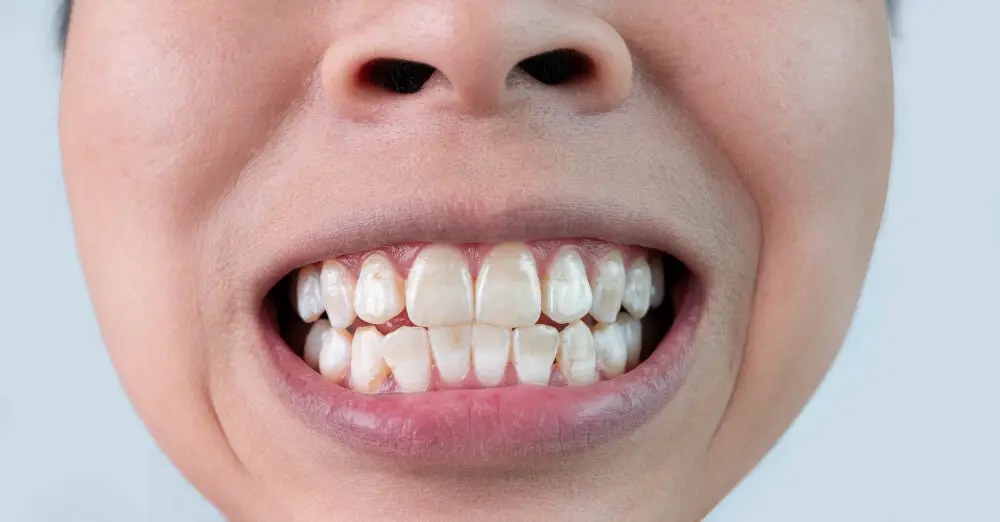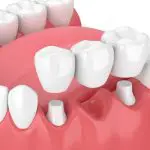Dog Teeth Chattering: Understanding the Reasons Behind this Strange Behavior

Dog teeth chattering is a strange behavior that can leave many pet owners perplexed. While it may seem like a trivial issue, it can be a sign of underlying problems that require immediate attention. Dogs can chatter their teeth for various reasons, ranging from physical discomfort to emotional distress. As a responsible pet owner, it is essential to understand the reasons behind this behavior to provide the necessary care and support for your furry friend. Chattering teeth in dogs can be a worrying sight, especially if you have never seen it before. It is a rapid movement of the jaw accompanied by an audible clacking or grinding sound. This behavior is often mistaken for shivering or trembling, but it is entirely different. Dogs may also appear tense or anxious during teeth chattering, which can make it hard to determine the root cause. However, with a little bit of knowledge and understanding, you can quickly identify the reasons behind this behavior and take the appropriate action.
Teeth chattering in dogs is a behavior that is commonly observed in dogs and can be characterized by the rapid and repetitive movement of the dog’s jaw. This phenomenon is usually associated with cold temperatures or stress and anxiety in dogs. The teeth chattering can also be accompanied by other physical signs such as shivering, trembling, or restlessness. It is important to note that teeth chattering in dogs may also indicate certain medical conditions, such as dental problems, neurological issues, or pain. Therefore, it is crucial for dog owners to pay attention to their dog’s behavior and seek veterinary attention if necessary.
It is crucial to comprehend the behavior of dog teeth chattering since it may signal various underlying problems that require immediate attention. While dogs may chatter their teeth due to excitement or anxiety, it could also indicate a medical issue such as dental problems, pain, or illness. By recognizing the reasons behind this behavior, pet owners can provide the necessary care and seek medical attention if required. Additionally, understanding the causes of dog teeth chattering can help prevent possible harm to both the dog and its owner, as some dogs may become aggressive when experiencing discomfort or pain. Therefore, it is essential to observe and understand this behavior to ensure the wellbeing of our furry companions.
Cold and Fear

Cold and fear are two common reasons why dogs may start chattering their teeth. When a dog is feeling cold, their body shivers in an attempt to warm up, and this can cause their teeth to chatter too. This is particularly common in smaller breeds or those with short fur, who struggle to regulate their body temperature in cold weather. It’s important to keep your dog warm and comfortable during colder months, whether that’s through extra layers or a cozy bed indoors. If your dog’s teeth are chattering due to the cold, it’s a sign that they need some extra warmth and attention. On the other hand, fear is another reason why dogs may start chattering their teeth. This can happen if they’re feeling anxious or threatened, and is often accompanied by other signs of fear such as trembling, panting or hiding. If your dog is chattering their teeth due to fear, it’s important to try and identify the cause of their anxiety and address it as soon as possible. This may involve removing the source of the fear, such as loud noises or unfamiliar people, or providing your dog with some extra support and reassurance. With patience and understanding, you can help your dog overcome their fears and feel more comfortable and confident in their surroundings.
Cold weather can cause teeth chattering in dogs due to a natural response by their body to maintain warmth. When the temperature drops, the muscles surrounding the jaw and face tense up, which can result in the chattering of the teeth. This is a reflexive action that occurs to increase blood flow and generate heat in the body. Additionally, dogs may also shiver in cold weather, which can exacerbate the chattering of their teeth. While this behavior is normal and usually harmless, it’s important to ensure that your furry friend stays warm and protected from the elements during colder months.
Dogs are known to express their emotions through various behaviors, and teeth chattering is one of them. While teeth chattering in dogs can be a sign of excitement or anticipation, it can also indicate fear and anxiety. When a dog is scared or anxious, their body releases a surge of adrenaline, which can cause their teeth to chatter. This behavior is often accompanied by other signs of fear, such as trembling, cowering, and whining. It’s important for pet owners to recognize these signs and take steps to calm their dog down and alleviate their anxiety. This can include providing a safe and secure environment, engaging in calming activities, and seeking professional help if necessary. By understanding the reasons behind dog teeth chattering, pet owners can better care for their furry friends and ensure their emotional well-being.
When observing a dog exhibiting teeth chattering behavior, it can be challenging to determine whether it’s due to cold or fear. However, there are a few signs to look for that can help distinguish the cause. If the dog is shivering, has a hunched posture, and is seeking warmth, it’s likely due to cold. On the other hand, if the dog is displaying other signs of fear, such as cowering, avoiding eye contact, and having a generally anxious demeanor, it’s more likely due to fear. Additionally, if the chattering is accompanied by growling or barking, it’s more likely due to fear or aggression rather than cold. It’s essential to observe your dog’s behavior and take note of any other signs to determine the root cause of their teeth chattering.
Pain and Discomfort

Dog teeth chattering is a strange behavior that can be observed in dogs. It is a sign of pain or discomfort, and it is important to identify the reason behind it. Pain and discomfort can be caused by various factors, such as dental issues, arthritis, injury, or illness. In some cases, it may also be a sign of anxiety or fear. When a dog is in pain or discomfort, it can manifest in different ways, including teeth chattering, whimpering, or restlessness. It is important to observe the dog’s behavior and seek veterinary care if the behavior persists or worsens. Dental issues are one of the most common causes of pain and discomfort in dogs. Dogs can suffer from various dental problems, such as tooth decay, gum disease, or abscesses. These issues can cause pain, discomfort, and inflammation that can lead to teeth chattering. Arthritis is another common cause of pain and discomfort in dogs. As dogs age, their joints can become inflamed, causing pain and discomfort. This can cause the dog to become restless, and teeth chattering may be one of the symptoms. It is important to provide adequate care and treatment to alleviate pain and discomfort in dogs, ensuring their health and well-being.
Pain or discomfort can cause teeth chattering in dogs due to the activation of the sympathetic nervous system. This response is an involuntary reflex that occurs when the body is experiencing stress, anxiety, or pain. Teeth chattering is often a sign that the dog is in distress, and it can be triggered by a variety of factors, including dental problems, physical injuries, and emotional stress. In some cases, teeth chattering may also be a symptom of neurological disorders or muscle spasms. It’s important to pay attention to the circumstances under which your dog’s teeth are chattering, as it can provide valuable insight into their overall health and well-being.
Dog teeth chattering is a strange behavior that can indicate various underlying health issues. One common cause of teeth chattering in dogs is pain or discomfort, which can be caused by dental problems such as tooth decay, gum disease, or even a cracked tooth. Other possible causes of pain or discomfort that may lead to teeth chattering include arthritis, joint problems, or an injury. Dogs may also chatter their teeth due to cold or anxiety, but it’s important to rule out any physical health issues first. If your furry friend is experiencing teeth chattering, it’s best to take them to a veterinarian for a thorough check-up to determine the underlying cause and provide the appropriate treatment.
If your dog is exhibiting teeth chattering behavior, it’s important to determine whether it’s caused by pain or discomfort. One way to do this is to observe your dog’s body language and behavior. If your dog is exhibiting other symptoms such as limping, lethargy, or avoiding certain movements, it may be a sign of pain. Additionally, if your dog is only exhibiting teeth chattering during certain activities such as being touched or moved in a certain way, it may be a sign of discomfort. It’s important to consult with your veterinarian to rule out any underlying medical conditions that may be causing your dog’s behavior. By paying close attention to your dog’s behavior and seeking professional advice, you can determine the cause of your dog’s teeth chattering and provide them with the appropriate care and treatment they need.
Excitement and Anticipation

Excitement and anticipation are common emotions that dogs experience and can often manifest in peculiar behaviors such as teeth chattering. When a dog is excited or anticipating something, its body becomes tense, and it may start to tremble or shake. Teeth chattering is a form of trembling that occurs when a dog is excited or anticipating something pleasant, such as going for a walk, playing with their favorite toy, or receiving a treat. This behavior is often accompanied by other signs of excitement, such as wagging tails, jumping up and down, and vocalizations such as barking or whining. It is important to note that while teeth chattering can indicate excitement and anticipation, it can also be a sign of anxiety or fear in some dogs. Dogs that are anxious or fearful may also exhibit this behavior, and it is important to pay attention to other signs that may indicate these emotions, such as cowering or hiding. It is essential to understand the context and body language of the dog to determine whether the teeth chattering is a sign of excitement or anxiety. By understanding the reasons behind this strange behavior, dog owners can better interpret their dog’s emotions and provide appropriate care and attention.
Dog teeth chattering can be a strange behavior that can sometimes leave pet owners confused and concerned. However, it’s important to remember that dogs can chatter their teeth for a variety of reasons, including excitement and anticipation. When a dog is feeling particularly stimulated or eager, it’s not uncommon for them to start chattering their teeth as a way to release some of that pent-up energy. This behavior is often accompanied by other signs of excitement, such as wagging tails and barking, and is typically nothing to worry about. While it can be unsettling to witness at first, understanding the reasons behind your dog’s teeth chattering can help put your mind at ease and allow you to enjoy your pet’s playful behavior.
When trying to recognize the difference between dog teeth chattering and other causes, it’s essential to observe the dog’s body language and surroundings. Teeth chattering may occur due to various reasons, such as cold temperatures, fear, anxiety, or excitement. If the dog is shivering or trembling, this indicates that the chattering is due to cold weather. On the other hand, if the dog is exhibiting fearful behavior like cowering or hiding, the chattering may be due to anxiety or fear. Additionally, if the dog is wagging its tail and appears excited, the chattering may be due to excitement. It’s important to note that if the behavior persists, consulting a veterinarian is recommended to rule out any underlying health conditions.
Dog teeth chattering is a strange behavior that can be caused by excitement or anticipation. While it may seem harmless, it is important to address this behavior as it can be a sign that your dog is experiencing stress or discomfort. If left unchecked, this behavior can escalate into more serious issues such as anxiety or aggression. It is crucial to identify the underlying cause of the behavior and take steps to address it, whether that be through training, environmental changes, or seeking veterinary advice. Ultimately, addressing this behavior can improve your dog’s overall well-being and strengthen the bond between you and your furry companion.
Medical Conditions

Medical conditions can be a contributing factor to a dog’s teeth chattering. One of the most common illnesses that can cause this behavior is dental disease. Dogs that have tartar buildup, gingivitis, or periodontal disease may experience discomfort in their mouths, leading to teeth chattering. In severe cases, dental disease can lead to tooth loss, making it difficult for dogs to eat and causing them to feel pain. It’s essential to schedule regular dental cleanings for your dog and to pay attention to any signs of dental problems, such as bad breath or swollen gums, to prevent teeth chattering and other related issues. Additionally, neurological disorders can also cause teeth chattering in dogs. Conditions such as epilepsy or degenerative myelopathy can cause involuntary movements throughout a dog’s body, including the jaw muscles. This can result in teeth chattering, along with other symptoms such as seizures or difficulty walking. If you notice any changes in your dog’s behavior or movement, it’s essential to visit your veterinarian for an evaluation. Early diagnosis and treatment of neurological disorders can help manage symptoms and improve your dog’s quality of life.
Teeth chattering is a common behavior in dogs that can indicate a range of medical conditions. One such condition is dental pain, which can cause dogs to clench and grind their teeth in an attempt to alleviate discomfort. Additionally, neurological disorders such as seizures or tremors can also lead to teeth chattering. In some cases, dogs may experience chills or a drop in body temperature due to illnesses like hypothyroidism or kidney disease, which can cause shivering and teeth chattering as a way to generate heat. It’s important for pet owners to observe their dog’s behavior and seek veterinary attention if teeth chattering persists or is accompanied by other symptoms.
There are several medical conditions that may cause a dog to chatter its teeth. One common cause is dental issues, such as a broken tooth or gum disease. In addition, neurological conditions, such as seizures or tremors, can also lead to teeth chattering. Anxiety and stress can also play a role in this behavior, as can pain or discomfort caused by other medical conditions. It is important to consult with a veterinarian if a dog is exhibiting this behavior, as it can be a sign of an underlying health issue that requires treatment.
It is crucial to seek veterinary care if a dog’s teeth chattering is caused by a medical condition. Teeth chattering is not always a harmless behavior, and it can be a sign of underlying health problems such as pain or anxiety. In some cases, it might indicate dental issues, such as a cracked tooth or gum disease. Delaying treatment for these conditions can lead to more severe health problems, which could have been prevented with prompt veterinary attention. Seeking veterinary care will ensure that your dog receives the necessary treatment, and the underlying cause of the teeth chattering can be addressed, improving your dog’s overall quality of life.
Dogs can chatter their teeth for various reasons, and understanding these reasons can help pet owners identify any underlying health issues. One of the most common reasons for teeth chattering is due to anxiety or fear, which can cause a dog’s body to tremble and their teeth to chatter. Dental problems such as tooth decay or gum disease can also cause dogs to chatter their teeth, as can neurological issues or pain. Sometimes, dogs will chatter their teeth when they are cold or experiencing a fever, and in rare cases, it can be a sign of seizure activity. It is important to observe a dog’s behavior and consult with a veterinarian if teeth chattering is persistent or accompanied by other concerning symptoms.
Identifying the cause of a dog’s teeth chattering is of utmost importance for pet owners. This peculiar behavior can be a sign of discomfort, anxiety, or even a medical condition. Understanding the underlying reason behind this behavior can help prevent future occurrences and ensure the well-being of the dog. For instance, if the chattering is caused by anxiety, pet owners can take steps to alleviate their dog’s stress levels, such as providing a safe and comfortable environment or seeking professional help. On the other hand, if the cause is a medical condition, prompt treatment can be provided to the dog. Therefore, identifying the cause of a dog’s teeth chattering is crucial in ensuring their overall health and happiness.
In conclusion, dog teeth chattering can be a sign of various underlying issues such as anxiety, excitement, or dental problems. As a pet owner, it is important to observe your dog’s behavior and take note of any unusual signs. If you notice your dog’s teeth chattering frequently, it is recommended to take them to a veterinarian for a thorough checkup. Additionally, providing proper dental care, maintaining a healthy diet, and engaging in regular exercise can prevent dental issues and reduce anxiety in dogs. Remember to always prioritize the health and well-being of your furry friend by taking prompt action when necessary.
Conclusion

In conclusion, dog teeth chattering can indicate a variety of underlying causes, from excitement and anxiety to dental problems and medical conditions. Understanding the reasons behind this behavior can help pet owners provide the necessary care and attention to their furry friends. It is vital to observe the frequency and duration of the teeth chattering and seek professional advice if it becomes a chronic issue. Ultimately, ensuring the overall physical and emotional well-being of our canine companions is key to a happy and healthy life together.







